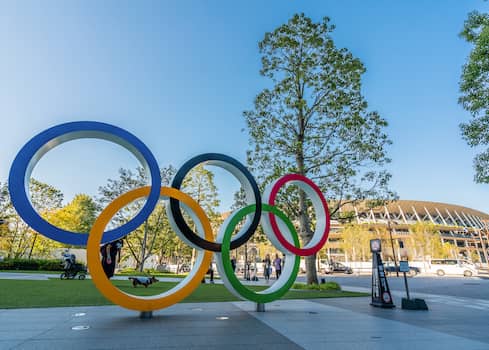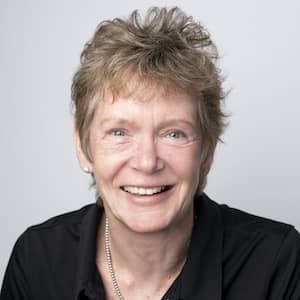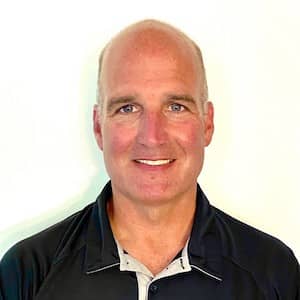
Credit rating: Chaay_tee via Adobe Inventory
Even though athletes and sports groups around the planet pore over performance metrics in an hard work to boost their performance and gain much more competitions, a new aspect has appear into enjoy this calendar year as they head to the delayed 2020 Tokyo Summer Olympic Games.
Amid the headlines about medal winners and athletes’ personal stories, a further story has overshadowed the games — COVID-19 instances at the 2020 games all through this summertime of 2021. Even though vaccinations have been administered in some elements of the planet, the Delta variant of COVID has taken maintain in latest months and is resulting in new instances of the virus to grow in a lot of places of the planet, together with Tokyo, which is now in its fourth point out of unexpected emergency.
And when all the consideration correct now is on the games taking location in Tokyo, there have been months and yrs of preparation by groups and athletes to get ready for these celebrated two weeks of worldwide competition. Yet again, COVID has overshadowed this teaching the final 18 months. How can you practice when your facilities are closed? What ought to you do if an athlete on your group is contaminated? How a lot down time does an an infection suggest? How speedily or slowly and gradually ought to you bring an athlete back soon after COVID? Ought to a group deliver athletes overseas to practice, or is that too risky?
These thoughts and much more had been some of what athletes and groups prepping for the Tokyo Summer Games had been dealing with. Since COVID was new, there was no street map for the most effective way to strategy teaching all through this pandemic.
Own the Podium faced just this obstacle. This Canadian non-earnings prospects the route of funding to high-performance plans to support Canadian athletes gain much more medals at the Olympic and Paralympic Games. It also offers technological direction and information. But in prepping for the Tokyo Summer games and the Beijing 2022 Paralympic Winter season Games following calendar year the business faced these new thoughts around how to most effective satisfy its constitution all through a pandemic.
“We do track athletes’ wellbeing, we do have an ingestion procedure that would include disease and illness,” mentioned Andy Van Neutegem, director of activity science, medicine, and innovation at Own the Podium. “But we’ve never ever seen something of this magnitude prior to.”
Back in the early days of the pandemic, the very first purpose was to create strategies and protocols to return to sports and teaching and competition securely, Own the Podium CEO Anne Merklinger advised InformationWeek. Safety was the prime priority. (For the very first time because its inception, Own the Podium did not established out medal targets for Canadian athletes at the Olympics.)

Anne Merklinger, Own the Podium
Own the Podium wanted to established up possibility assessment equipment that involved monitoring the quantity of bacterial infections at distinctive concentrations of activity and then be in a position to use that data to detect trends of wherever and when bacterial infections happened. Was it in teaching? Was it in competition? Then it wanted to be in a position to use individuals insights to mitigate foreseeable future bacterial infections.
SAS Institute Senior Options Advisor Stephen Ondrik assisted Own the Podium established up a series of dashboards to visualize the critical data and trends. For instance, all through teaching, SAS VIYA assisted coaches improve and tailor teaching strategies by contemplating environmental elements such as weather, geography, and indoor vs outside facilities. It enabled coaches and athletes to re-calibrate if a teaching disruption happened.
Own the Podium gathered data through COVID tests and also questionnaires loaded out by the national sports organizations or NSOs. Data collected and visualized involved positivity rates, days of teaching misplaced, and symptom profiles.
For instance, the business wanted to search at an infection rates of athletes as opposed to national averages, according to Van Neutegem. It turns out that athlete an infection rates had been a lot lessen than individuals of the basic populace.
That info came in useful all through teaching. At a person issue all through the pandemic, a facility ordinarily employed by athletes to practice was closed down to stop the spread of COVID. Merklinger mentioned that Own the Podium was in a position to show data about the reduced amount of an infection amid its athletes as opposed to the basic populace to show to facility administration that it would be risk-free for them to open the facility to these athletes for teaching.
Other tracked data involved days misplaced to competitions and days misplaced to teaching — elements to support the groups take care of the workloads.
“We had been contemplating of COVID like an injuries,” Van Neutegem mentioned. “You you should not want to rush the athlete back.”

Dr. Andy Van Neutegem, Own the Podium
As the Tokyo games got closer, the organizations started out on the lookout at the distinctive varieties of exams employed on athletes. For individuals athletes who experienced earlier suffered a COVID an infection, they had been much more possible to get a wrong optimistic exam with sure varieties of exams. Therefore, the business recommended the groups to advocate for the use of sure exams deemed much more accurate for sure athletes when they got to Tokyo.
“Since we’ve been monitoring individuals sports that have experienced athletes with an an infection, we had been in a position to get forward of the game,” Merklinger mentioned. “We had been much more proactive.”
Now Own the Podium has a host of data about the impacts of COVID on teaching and competition for its athletes. The business is setting up a complete debrief on the Tokyo knowledge in Oct to establish the lessons figured out, what the business did nicely, and what could be improved for the foreseeable future.
But most critical is the wellbeing and security of the athletes.
“Safety was our No. 1 priority,” Merlinger mentioned. “That was all we talked about — we have to have to defend the wellbeing and security of every person going to Tokyo. This data assisted us do that.”
What to Read Upcoming:
Formula One, NFL, and NHL Do the job on Their Hustle with AWS
IBM Places Purple Hat OpenShift to Do the job on Athletics Data at US Open up
TaylorMade IT Spin-Off Taps Cloud Databases
Jessica Davis is a Senior Editor at InformationWeek. She addresses enterprise IT management, careers, artificial intelligence, data and analytics, and enterprise program. She has invested a job masking the intersection of enterprise and technological innovation. Comply with her on twitter: … Check out Comprehensive Bio
Much more Insights
